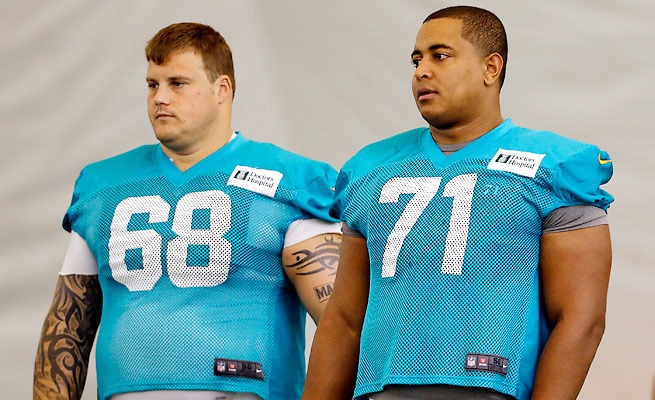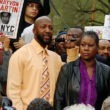(Richie Incognito, left, and Jonathan Martin | Source: press pool)
I admit it. I’m fascinated by the Jonathan Martin/Richie Incognito controversy. At first, I was drawn in by Incognito’s name. Was it real or an amazing alias a la Carlos Danger?
Since then, I’ve listened to speculation on what made the offensive tackle leave the Miami Dolphins; on the presence of racism in the Dolphins locker room; on the meaning of “manhood”; and on how Martin should have handled Incognito’s alleged bullying.
What fascinates me, however, is what it says about leadership.
| Why did Miami Dolphins leadership turn for help to the second dirtiest player in the NFL in 2012, down from the dirtiest in 2009? |
Last spring, after Martin missed a voluntary workout, coaches asked Incognito to toughen him up. Martin had skipped two days of workouts and Incognito was asked to “get him into the fold,” according to one reported source. Even at this early stage, from a leadership perspective, a few questions immediately leap to mind.
First, how do you decide someone needs toughening up after missing two days of workouts. Second, why not talk to Martin? Why not school him on the real meaning of voluntary (hint: it’s not, really)? If he did indeed need toughening up, why not discuss his performance on the field and negotiate a staged plan for improvement?
Finally, and most importantly, why turn to Incognito?
Players across the league rated Richie Incognito the second dirtiest player in 2012, down from the dirtiest in 2009 when he was with St. Louis. The Rams waved him that year after the league fined him $50,000 and issued a warning for headbutting.
At the University of Nebraska, Incognito was accused of spitting on players. He was ejected once for fighting. He was found guilty of assault at a party in Lincoln. He was sent away for anger management treatment. He was finally suspended for a locker room fight.
Was anyone really surprised when Incognito reportedly said the the following?
“Hey, wassup, you half n—– piece of s—. I saw you on Twitter, you been training 10 weeks. [I want to] s— in your f—ing mouth. [I’m going to] slap your f—ing mouth. [I’m going to] slap your real mother across the face [laughter]. F— you, you’re still a rookie. I’ll kill you.”
An organization’s leaders represent that organization’s values. Incognito was the leader of the offensive line and was elected to the team’s six-man leadership council.
Yet in 2012, he was alleged to have sexually harassed a female worker during a team outing. Dolphins Vice President Nat Moore apologized to the woman, who signed a confidentiality agreement. And in June 2013, Incognito was involved in a nightclub fight in Miami Beach that led to a trespass warning.
Incognito faced little discipline for these transgressions perhaps because they were in line with Dolphins culture. After all, team General Manager Jeff Ireland reportedly told Martin’s agent that maybe Martin should punch Incognito as compensation.
By comparison, when Martin arrived at Stanford, he weighed 261 pounds and couldn’t push defensemen around. To bulk up and become more physical, Martin made a bet with Sam Schwartzstein, the center, over who could get to 270 pounds faster. Martin won. Then coaches worked with him to develop a punching technique that allowed him to push defensemen around.
As the NFL begins its independent investigation and we hear more about Martin/Incognito, keep in mind the leadership differences between Miami and Stanford.
Real leaders identify strengths and weaknesses, coach for improvement, and inspire trust. When an organization shows leadership, you show up for work.
And believe it or not, you can lead without threatening to shit in someone’s mouth.
David Akadjian writes under this alias for Daily Kos. Follow him @akadjian.




0 Comments